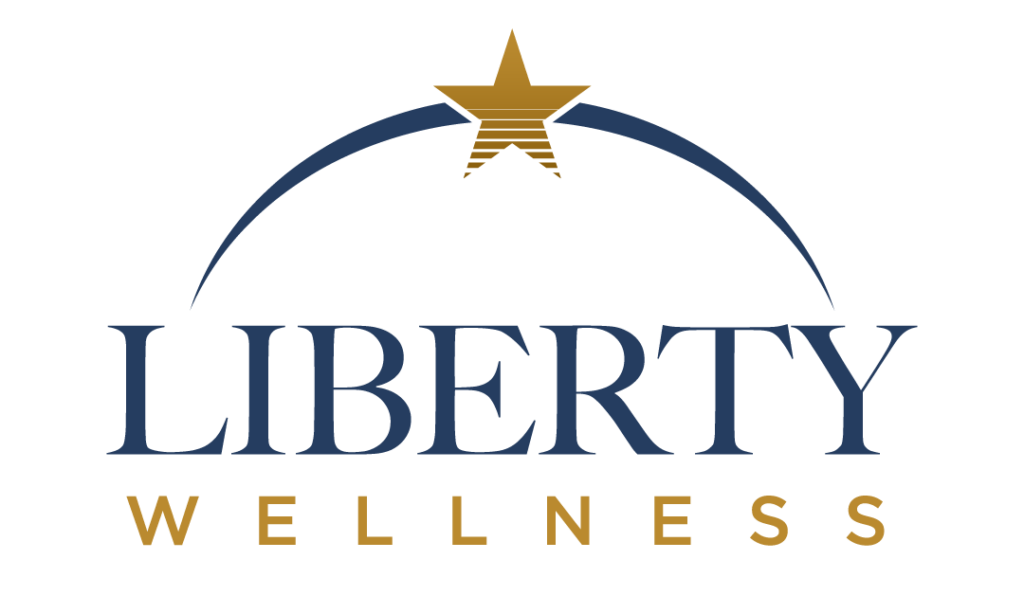Personality Disorder Treatment
Personality Disorders: The Warning Signs You Should Know
Personality disorders can be complicated to diagnose, as many symptoms can be attributed to other mental illnesses or expected behavior. Let’s discuss the warning signs you should look out for if you think someone you know may have a personality disorder.
We will also provide information on the different types of personality disorder treatments available .
Liberty Wellness is a drug and alcohol rehab center in New Jersey. Contact us today to learn more about our NJ dual diagnosis treatment.


Our Co-Occurring Disorder Program
Liberty Wellness of New Jersey Makes Your Journey To Recovery As Stress-Free As Possible.
What is a Personality Disorder?
A personality disorder is a severe mental health condition affecting how an individual interacts with the world and understands their emotions. People with personality disorders display patterns of behavior and thinking outside of social norms, making it difficult for them to maintain healthy relationships or function in everyday life.
What Are the Types of Personality Disorders?
Several different types of personality disorders are recognized, each characterized by its own signs and symptoms. The most common types are:
Paranoid Personality Disorder: This type of disorder is marked by extreme distrust and suspicion of others, often accompanied by feelings of being persecuted or constantly threatened.
Schizoid Personality Disorder: This disorder is characterized by an inability to form meaningful relationships, an extremely introverted and isolated lifestyle, and a lack of interest in social activities.
Schizotypal Personality Disorder: This disorder is marked by extreme discomfort in social situations, eccentric or odd behaviors, and magical thinking.
Antisocial Personality Disorder: A disregard characterizes individuals with this disorder for the rights and feelings of others, impulsivity, and manipulation.
Borderline Personality Disorder: This disorder is characterized by extreme mood swings, impulsiveness, unstable relationships, and a fear of abandonment.
Histrionic Personality Disorder: This disorder is marked by an excessive need for attention, flamboyant behavior, and extreme emotions.
Narcissistic Personality Disorder: People diagnosed with Narcissistic personality disorder have an inflated sense of self-importance as well as an overwhelming need for admiration from others and often struggle with feelings of insecurity or inadequacy.
Avoidant Personality Disorder: Individuals with this disorder have difficulty forming relationships, are overly sensitive to criticism, and tend to feel a lack of self-worth.
Dependent Personality Disorder: Those with this disorder have difficulty making decisions, rely heavily on others for support, and are overly submissive.
Obsessive Personality Disorder: This disorder is characterized by an excessive need for orderliness, perfectionism, and a focus on details that can interfere with relationships and productivity.
What Are the Warning Signs of a Personality Disorder?
Some common warning signs that someone may have a personality disorder include:
- An inability to maintain healthy relationships with friends or family members
- Difficulty following societal norms
- Inappropriate or volatile emotions such as anger, anxiety, or depression
- Impulsivity and a disregard for personal safety
- Unusual thought patterns or beliefs
- Manipulative behavior or an excessive need for control
- Extreme focus on details that can interfere with productivity or relationships
What Causes Personality Disorders?
The precise origin of personality disorders is yet to be discovered, although many elements might contribute. This includes genetics, environmental influences, and the chemistry in our brains.
Personality Disorder Statistics
Studies have shown that approximately 9% of the adult population in the United States has some form of personality disorder.
Compared to men, women are disproportionately more susceptible to developing personality disorders.
Can Personality Disorders Cause Addiction?
Personality disorders can significantly increase the risk of developing an addiction, as individuals who struggle may turn to drugs or alcohol to cope with their emotions. Statistics show that up to 65% of those with a personality disorder have an additional substance use disorder, making it crucial for individuals to seek specialized treatment.
Dual diagnosis treatment is recommended for those in this situation, as it provides comprehensive care that addresses both conditions simultaneously.
How Are Personality Disorders Treated?
An array of treatments are available to those struggling with a personality disorder, offering hope for recovery. Find a personality disorder treatment center in New Jersey for rehab programs like:
Dual Diagnosis Treatment: This type of treatment is designed to simultaneously address a mental health disorder and a substance use disorder.
Cognitive Behavioral Therapy (CBT): This approach focuses on helping individuals change their unhealthy thought patterns and behaviors.
Dialectical Behavior Therapy (DBT): This therapy helps those with personality disorders learn to express emotions in a healthy manner while understanding the triggers of negative behavior.
Medication: Depending on the type of disorder, some individuals may benefit from medication such as antipsychotics or mood stabilizers.
Residential Rehab Program: Inpatient rehab programs help provide patients with personality disorders with a safe and supportive environment for rehab and recovery.
Intensive Outpatient Program: IOPs allow patients to practice their recovery skills in a safe environment while still living at home.
Outpatient Treatment: This treatment is designed to give individuals the tools they need to manage their disorder while living in their own homes.
Individual Therapy: This type of therapy focuses on the individual’s unique needs and helps them identify and address root issues that may be contributing to their disorder.
Group Therapy: Group therapy allows individuals to share their stories and connect with others in a similar situation. It can be incredibly therapeutic and help foster healthier relationships.
Family Therapy: Family therapy helps strengthen relationships and encourages family members to work together towards a common goal.
Support Groups: Support groups provide a safe place for individuals to share their stories and experiences with one another while finding encouragement or understanding from peers.
Aftercare Support Services: Aftercare services can help to ensure that individuals stay on the path to recovery and avoid relapse.
How to Find Dual Diagnosis Personality Disorder Treatment Near You
If you or a loved one are struggling with a personality disorder and addiction, the best way to receive treatment is through a specialized dual-diagnosis program.
These programs provide comprehensive care that addresses both conditions simultaneously.
You can start by searching for dual-diagnosis treatment centers in your area online.
Be sure to look at reviews and ask questions before deciding. Additionally, your doctor can provide you with a recommendation.
By getting the help and support needed, individuals can learn healthier coping mechanisms and find stability in their lives.
Those struggling with personality disorders can experience improved quality of life with proper treatment.
Liberty Wellness Offers Dual Diagnosis Personality Disorder Rehab in New Jersey
Contact Liberty Wellness to get the help and support you need. Our certified clinicians offer specialized dual-diagnosis personality disorder treatment in New Jersey, allowing individuals to receive the comprehensive care they need to lead fulfilling lives.
Call us today to learn more about our personality disorder treatment center in New Jersey!
We Accept Multiple Types of Insurance
Get help with payment for your Addiction rehab treatment. We accept multiple types of insurance and can help you verify if you will be accepted.








Reach out to us with any questions or to get started
Our Location:

-
20 East Taunton Road Suite 103
Berlin NJ 08009 - 866-937-3158

